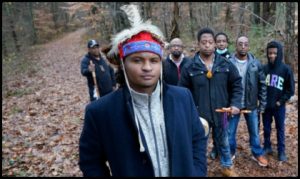In southeastern Massachusetts and the embattled Mashpee Wampanoag Tribe has reportedly encountered yet another obstacle in its plan to bring the $1 billion First Light Resort and Casino to a 321-acre parcel of land on the outskirts of Taunton.
According to a Wednesday report from the Associated Press news service published by ABCNews.com, the tribe of some 3,000 members was federally recognized in 2007 following many decades of effort before having its reservation placed into trust in the waning days of the administration of President Barack Obama. This latter decision purportedly gave the Mashpee Wampanoag Tribe the right to build and operate a Las Vegas-style casino resort utilizing an around $500 million loan from Asian operator Genting Malaysia Berhad.
Damaged designs:
However, the Associated Press reported that this proposal was scuppered earlier this year after the United States Department of the Interior unilaterally ‘disestablished’ the Mashpee Wampanoag Tribe’s reservation following the completion of a long-running federal court battle initiated by a group of local residents opposed to the idea of having a large casino on their doorsteps. Things purportedly got even worse for the tribe in July when the United St 7BALL ates District Court for the District of Massachusetts launched a grand jury investigation into its finances, which subsequently led to last month’s arrest on bribery charges of its long-time but now-ousted Chairman, Cedric Cromwell.
Contentious call:
Following all of this and the news service reported that the Mashpee Wampanoag Tribe is now facing a challenge from the recently-revived Mattakeeset Massachuset Tribe over who is the rightful heir to the land on which the First Light Resort and Casino was to sit. Although not federally-recognized, this second tribe purportedly claims that its rival’s ancestral homeland lies some 50 miles away on Cape Cod and that the land near Taunton has never been part of its historic territory.
Exciting evidence:
Larry Fisher (pictured) reportedly became Chief of the recovering Mattakeeset Massachuset Tribe in 2014 and he declared that the Mashpee Wampanoag Tribe has inflated its ancestral territory at the expense of other area Native American groups and should now be prevented from having the large Massachusetts plot placed back into its care. The leader purportedly pointed to documents from 1664 uncovered by academic researcher Jeremy Bangs that shows his tribe was ceded an area known as the ‘Titicut Reserve’ in perpetuity with this expanse now containing all of what is today the communities of Taunton, Middleborough and Bridgewater.
Fisher reportedly told the news service…
“The Mashpee Wampanoag Tribe blatantly fooled the whole entire country about this land belonging to them. We just want the truth to be told. It belongs to us, the Mattakeeset Massachuset Tribe.”
Official objection:
Fisher reportedly proclaimed that the Mattakeeset 
The leader reportedly told the Associated Press…
“At this time, we are looking to move on all efforts of sustainable and cultural development on our tribal lands. With or without state or federal support.”
Resolute rebuttal:
But, Steven Peters, spokesperson for the Mashpee Wampanoag Tribe, reportedly told the Associated Press that Fisher ‘is well-meaning but very confused’ before going on to assert that both tribes are members of the larger Wampanoag group of peoples who inhabited most of what later became southeastern Massachusetts and Rhode Island. He additionally purportedly pronounced that he has invited representatives from the Mattakeeset Massachuset Tribe to review more than 14,000 pages of supporting evidence his tribe submitted as part of the earlier federal land-into-trust process.



